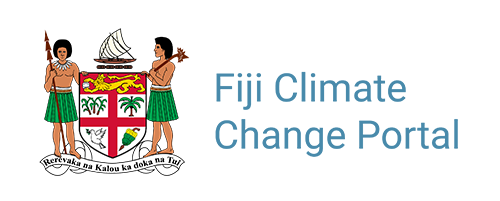
- This event has passed.
Initial Climate Finance Sector Working Groups (SWG) Meetings [Fiji National Designated Authority (NDA)]

Meeting Schedules
- 3.11.2020 for SWG 1: Sustainable Livelihoods and Healthy Communities (health, food, nutrition, and water security)
- 5.11.2020 for SWG 2: Ecosystems and ecosystem services and sustainable land management
- 10.11.2020 for SWG 3: Climate resilient infrastructure, sustainable energy, and the built environment
- 12.11.2020 for SWG 4: Sustainable Transport
Objectives
- Sensitise participants on what the Green Climate Fund (GCF) is and on the role of the National Designated Authority.
- Seek stakeholder views on how to develop a climate finance stakeholder engagement mechanism (the National Designated Authority (NDA) portal and Sector Working Groups) that is open, fair, transparent, inclusive, efficient and permanent.
- Increase awareness of Fiji’s climate change policies and plans to ensure future climate finance proposals are well aligned with these policies.
- Provide a snapshot of Fiji’s current climate finance flows.
Key Activities:
The sector working groups brought together stakeholders to canvas views and share future projects and investment plans, relating to climate finance priorities. The meetings were intended as an opportunity for the CCICD to provide information to stakeholders, for dialogue between stakeholders and the CCICD and also, importantly, for dialogue between the stakeholders themselves as an opportunity to identify and explore potential partnerships.
Each SWG meeting included five sessions as detailed below and the presentation slides were shared with all participants after the meeting.
Results:
Overview sessions covered the:
- GCF and the role the NDA plays in coordinating and supporting internal and external stakeholders to access GCF opportunities and resources.
- Key priorities of the national development policies and flagship climate policies that all climate finance projects should be aligned to in order to demonstrate buy in, strong country ownership and demand driven climate solutions.
- Various case studies of GCF projects that have been approved for Fiji, the Pacific and the SIDS to highlight the types and range of adaptation, mitigation and cross-cutting projects that could be developed under the four SWGs.
Establishing the SWGs is the start of a process of engagement with stakeholders interested in climate change, particularly in climate finance.
Next Steps
- Where possible, reading material should be provided to participants in advance of the any awareness, consultation meeting or training to facilitate and optimize meeting discussion time and enable more in-depth coverage of topics.
- Given that the participants are not uniformly familiar with climate finance and GCF related topics, and the majority of participants expressed interest in learning more, follow-up sessions should be planned within the scope of the project.
- Climate change and climate finance should be included in MoE annual training plans for employees to facilitate continuous learning.
- Full day (rather and two half-day) sessions would enable participants to better understand new or complex topics, and also improve focus by removing people from their daily responsibilities.
- In order to have a lean and efficient team, it is recommended to keep the consultative membership for each of the 4 SWGs to a maximum of 12 members, with 3 members, to be selected from the public, private sector, CSO and academia sectors.
- A draft TOR will be developed and sent to consultative members for comment and to be validated and endorsed at the Jan 2021 meeting.
Participants: 76
Related Information: Green Climate Fund (GCF) Fiji Projects & Programmes

